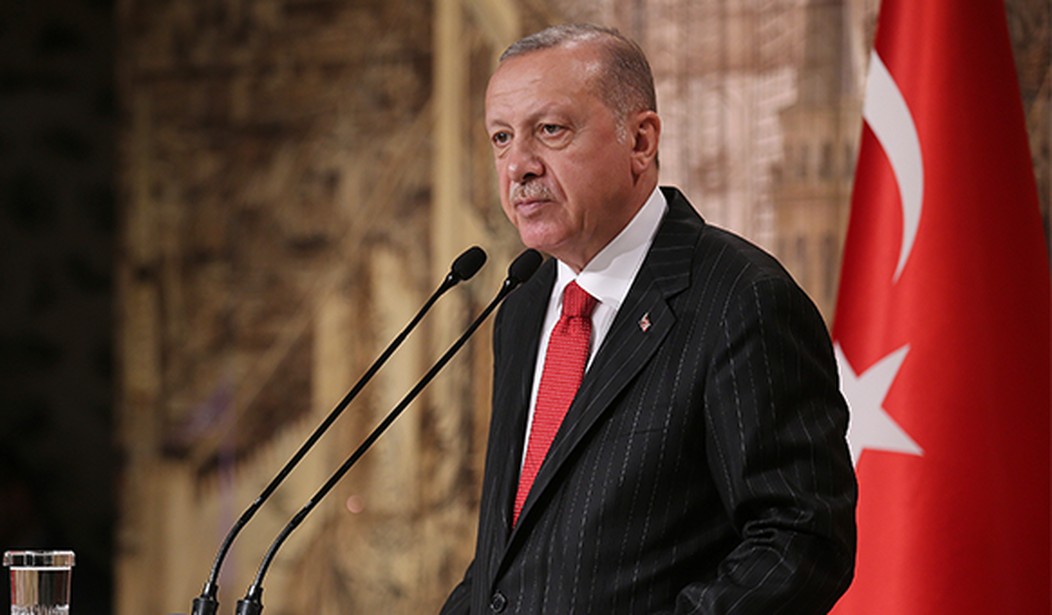The polls closed in Turkey a few hours ago, but with so many millions of people voting in an election that looks razor-thin, it may be a while before we know the final results. As we discussed yesterday, the current tyrant, Recep Tayyip Erdogan, is facing a tight battle with opposition leader Kemal Kilicdaroglu, with the most recent polls showing Erdogan trailing by more than five points. He’s won handily in the past, so what is contributing to his apparently fading support? There are a number of factors, including a recent earthquake that cost the lives of tens of thousands of people, with the devastation being blamed on lax building codes and inspections. The economy is also in a downward spiral. But as Time magazine pointed out this week, there has also been a distinct shift in societal attitudes, particularly among women.
Conservative Muslim women previously supported Erdogan strongly in a country they saw as sliding too far into liberalism and away from traditional Islamic values twenty years ago. But younger women have been increasingly moving away from some practices such as the wearing of headscarves. And even some of the women who wear them are adorning themselves with more Western makeup and jewelry. Reporters spoke to a few of them who now see their government being less democratic and more authoritarian.
Their mothers saw Erdoğan as an ally thanks to his lifting of a highly contentious ban on wearing the headscarf in government offices in 2013. Earlier that year, as the Gezi Park anti-government protests swept across Turkey, he had co-opted them as a constituency, describing them as “our sisters in headscarves.”
But in the decade that followed, many younger religious women like [Seyma] Çetin have shifted away from the President and his ruling Justice and Development Party (AKP). They accuse the government of trying to roll back the hard-won rights of Turkish women, including removing legal protections against gender-based violence and severely limiting access to abortion.
How much has Erdogan’s support dipped among women? A recent poll conducted by The Social Democracy Foundation found that as many as one-third of Turkish women who voted for the President last time were no longer sure they would vote for him again. You can’t win an election (if it’s conducted fairly and without fraud) while losing more than 30 percent of the women’s vote.
Many of them reflected the views of the woman quoted in the interview above in terms of democracy and freedom. Erdogan’s authoritarian tendencies have been on display for quite some time. When hundreds of them organized an annual Women’s March this year, Erdogan sent riot police to disband them using tear gas. That didn’t go over well at all. Seyma Cetin is quoted as saying, “Now our right to freedom of expression and protest is being met with violence. This government fears everything from everyone. We need a government that allows us to criticize it.”
Speaking of authoritarian tendencies, yesterday, only one day before the election, Erdogan asked Elon Musk to throttle the Twitter accounts of his opponents and their supporters. Shockingly (and disappointingly), Musk complied. This caught the attention of Matt Yglesias, among others.
The Turkish government asked Twitter to censor its opponents right before an election and @elonmusk complied — should generate some interesting Twitter Files reporting. https://t.co/RDrGS75Au5
— Matthew Yglesias (@mattyglesias) May 13, 2023
Musk responded angrily to Yglesias, claiming that Twitter would be throttled “in its entirety” in Turkey if he didn’t “limit access to some tweets.” That dragged Jonah Goldberg into the conversation, pointing out what a bad look this is for the supposed emperor of free speech forever.
If Twitter were throttled in its entirety perhaps Turkish voters would better understand the authoritarian tendencies of their government and the costs it’s imposing on the nation as a whole. Throttling the opposition to that govt on election eve doesn’t seem optimal imho.
— Jonah Goldberg (@JonahDispatch) May 13, 2023
Goldberg was far more restrained and polite than I was. This goes far beyond being “not optimal.” The entire foundation of Musk’s Twitter Files exposed how portions of the United States government were shutting down free speech on social media by locking out the accounts of their critics. Turkey may still have the ability to conduct a free and fair election today. How is the censorship of free political speech in Turkey any more acceptable than it is in America? This was a bad move on Musk’s part. Hopefully it won’t sway the election too much.








Join the conversation as a VIP Member